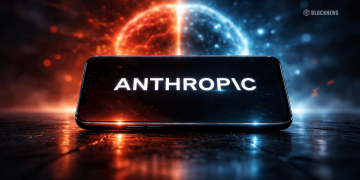- MetaMask introduces a staking service with Consensys, enabling Ether staking without the 32 ETH minimum requirement.
- The new service allows even small ETH holders to earn staking rewards, aiming to increase Ethereum’s security and decentralization.
- Despite its benefits, the staking service isn’t available in the U.S. or U.K. yet, pending regulatory developments.
MetaMask, in collaboration with Consensys, has developed a new staking service that simplifies the process for users by allowing them to pool their Ether (ETH) for staking. This innovation circumvents the traditional requirement to stake a minimum of 32 ETH, valued at approximately $112,000 currently, making it accessible for more users.
This pooled staking solution is part of a broader move to adapt Ethereum from its original proof-of-work system to a more sustainable proof-of-stake model. In this new setup, network validators play a crucial role in maintaining the blockchain’s operations and security.
Matthieu Saint Olive, a senior product manager at Consensys, emphasized the importance of broad participation in staking for enhancing the robustness of Ethereum. He noted that the diverse infrastructure of their validators helps in distributing the operational load across various global servers, which aids in minimizing risks and enhancing network security.
Risk and Accessibility in Staking
One significant aspect of staking is the risk of losing staked ETH due to validator errors or misconduct, known as “slashing.” Saint Olive reassured that their validators have operated without incidents since 2020, providing a level of reliability for participants.
Despite the high costs associated with becoming a validator due to the surge in ETH prices, MetaMask’s service targets the vast majority of ETH holders who do not own up to 32 ETH. This approach not only democratizes the staking process but also addresses the issue of a large portion of ETH being unstaked. Currently, 74% of all ETH remains unstaked, with much of it pooled in a few large entities.
While the service offers promising benefits and flexibility, including the ability to unstake assets at any time, it is not yet available to users in the U.S. and U.K. due to ongoing regulatory considerations. Saint Olive highlighted that the regulatory environment in the U.S. is evolving, and they are hopeful for an eventual rollout. Similarly, updates in regulatory guidance are expected in the U.K. to clear the path for these services.














